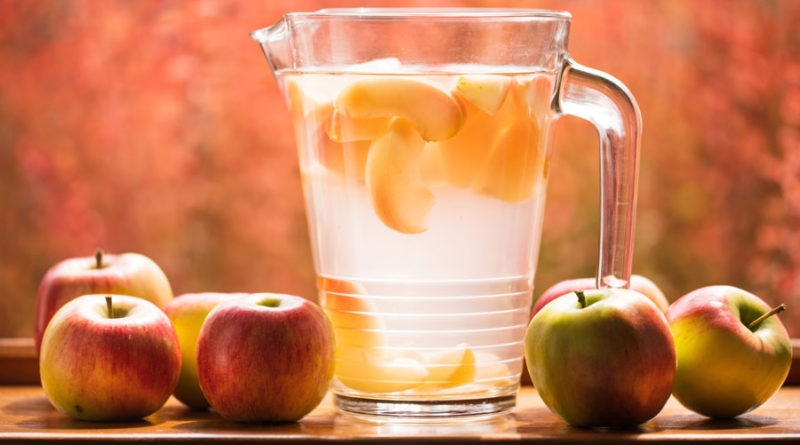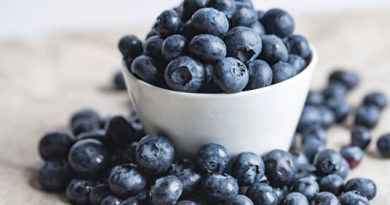Arsenic Alert – Apple Juice
I’ve read an alarming number of reports from health organizations such as the CDC about the presence of “arsenic in alarming levels” in our food supply specifically, in fruit juices such as apple juice, brown rice and products based on it (infant cereal and brown rice syrup), and in our own drinking water.
What is Arsenic and Why Be Concerned about It?
Arsenic is actually an element that’s naturally found in the earth’s crust. It is a semi-metal compound and in its natural state arsenic is deemed an organic compound. When it is combined with other elements such as sulfur, chlorine, and oxygen it turns into inorganic arsenic, a substance that is deemed carcinogenic to humans.
In terms of being a poison, inorganic arsenic is considered 600x more toxic than organic arsenic. In spite of this extreme toxicity to humans, inorganic arsenic is still used in some wood preservatives and pesticides.
Arsenic is tasteless and odorless and can contaminate drinking water supplies as agricultural and industrial practices as well as natural deposits in the earth tend to seep into water reservoirs. When the levels of arsenic are kept below 10 parts-per-billion, water is considered safe to drink.
An investigation by Consumer Reports in September 2011 revealed that 10% of grape juice and apple juice showed arsenic levels exceeding the levels the Environmental Protection Agency (EPA) deemed to be safe.
The investigation showed that the levels were over 23 parts-per-billion in these fruit juices! Upon further investigation, the EPA found that the juices’ arsenic levels were even higher than originally reported. A greater problem was the fact that the predominant type of arsenic present in the juice samples tested was found to be inorganic arsenic.
To humans, inorganic arsenic is considered to be extremely dangerous and has been connected to several health issues including:
- Cancer (specifically, cancer of the prostate, liver, nasal passages, kidney, skin, lungs, and bladder)
- Cardiovascular disease
- High blood pressure/ hypertension
- Diabetes
Rice, next to water, has been found to be the largest source of inorganic arsenic in our diets.
How Did This Happen?
Because it grows in wet environments, the rice plant will naturally extract arsenic from the water and soil in which it is planted. The arsenic is stored in the grain’s outer layer, the part that is polished off to obtain white rice.
Rice, especially brown rice, is known as a health food. Persons that prefer a gluten free diet, usually prefer brown rice flour based products such as bread or pasta, instead of wheat.
Being a known source of soluble fiber, brown rice is used by a lot of people as a supplement to help with sluggish bowels.
It is also a popular food choice for mothers to feed their babies and toddlers. One of the first foods often introduced to infants is rice cereal. But, due to their immature digestive system and rapidly developing brain, children are especially vulnerable to arsenic poisoning.
It is important for pregnant women to know that arsenic will cross the placenta. So, if you are pregnant, you may need to think about removing rice from you diet.
Steps to Avoid Taking Arsenic Inadvertently
Avoiding the products known to be contaminated with arsenic is obviously the easiest way to avoid putting it in your body. But, you don’t have to go to such extremes if rice is a food you enjoy. You don’t have to give it up completely although you may want to reduce your rice consumption. One half cup a day is the recommended maximum. Several studies show toxic levels of arsenic in the body if anything above the recommended maximum is taken in.
When it’s healthy, the human body is fortunately able to metabolize small doses of arsenic and other types of toxic substances. Recent research has revealed that gut bacteria contributes hugely in this process. For a healthy gut flora, probiotics are very essential.
Healthy bacteria in the gut are oftentimes known as probiotics which has more than 30 beneficial healing qualities. Taking probiotics can result in the most efficient digestion of food and absorption of nutrients. They also help the body absorb minerals, produce vitamins, and help in the removal of toxins.
Probiotics can also be integrated into your everyday diet in several ways, through a variety of supplements and yogurts. You should also refrain from eating foods such as refined sugars and processed foods that “throw off” or compromise your gut flora.
Through the air we breathe, the water that irrigates the crops, and the soil on which they grow, our food supply can be contaminated by arsenic and several other toxins. Although they may be impossible to avoid, we can still curtail the harm these toxins can wreak on our bodies by supplementing our diet with probiotics every day and by eating a healthy diet rich in dark leafy green vegetables.



